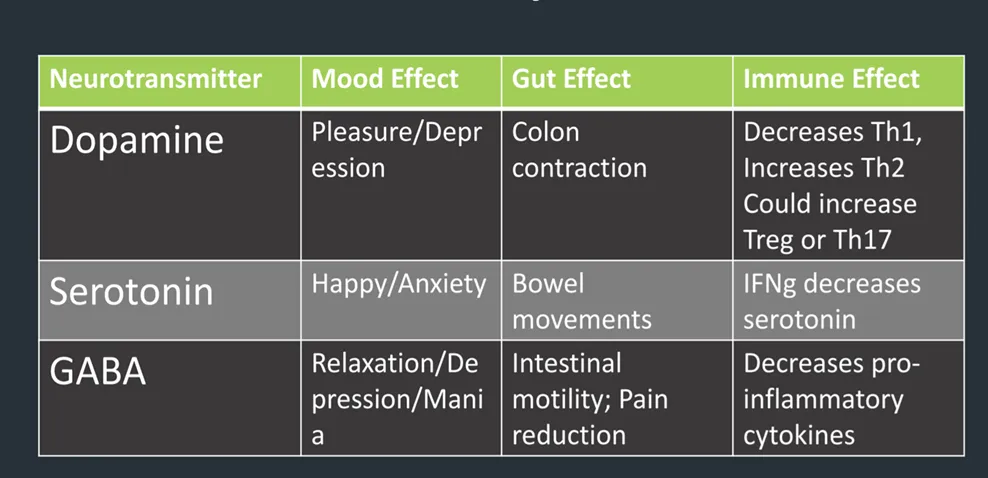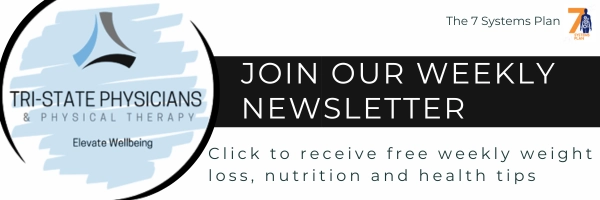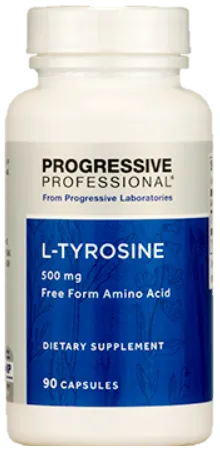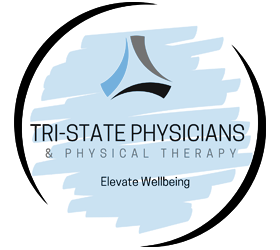Dopamine: How to Boost Your Drive and Motivation in South Sioux City NE
Neurotransmitters are the body’s chemical messengers. They carry messages from one nerve cell across a space to the next nerve, muscle, or gland cell. Dopamine in South Sioux City NE, frequently dubbed the “feel-good” neurotransmitter, plays a significant role in the body’s neurological system.
Responsible for feelings of pleasure, motivation, and drive, this neurotransmitter has vast implications for daily life. In this article, we will look deeper into dopamine’s importance, what affects its levels, and how to naturally enhance its presence for better overall health.
Digging into Dopamine: Its Role and Significance in South Sioux City NE
Dopamine is more than just a mood regulator. Beyond stimulating feelings of reward and pleasure, it’s also integral in various body functions like muscle movements and the Digestive and Defense System’s optimal functioning. Its influence extends to cognitive processes such as attention, decision-making, and mood regulation.
Imbalances, either too much or too little, can significantly affect one’s health, leading to disorders ranging from tremors to Parkinson’s disease, depression, and schizophrenia.
What are the Symptoms of Dopamine Deficiency?
- You lack motivation, “the drive.”
- You’re tired.
- You can’t concentrate.
- You’re moody or anxious.
- You don’t feel pleasure from previously enjoyable experiences.
- You’re depressed; you feel hopeless.
- You have a low sex drive.
- You have trouble sleeping or have disturbed sleep.
Testing Dopamine Levels: Why and How
To ascertain dopamine levels in the body, one can opt for a dopamine test. This diagnostic tool can be helpful because dopamine, in addition to influencing mood, has a hand in other vital functions like memory, behavior, cognition, attention, and sleep. Those experiencing sudden hypertension, palpitations, or tremors might be advised to take this test, as abnormal dopamine levels can be an underlying cause.
Understanding Dopamine Deficiency: Causes and Implications
While dopamine is naturally produced in the brain, various internal and external factors can interfere with its production. Leading a stressful life, not getting adequate sleep, an unhealthy diet, and certain medical conditions can reduce dopamine receptors in the brain. When these factors persist, they can pave the way for a myriad of health issues, both mental and physical.
Suboptimal dopamine levels can manifest in multiple ways. Psychologically, individuals may feel persistent sadness and lack of motivation and can even experience self-harming tendencies. Physically, symptoms range from restless leg syndrome to digestive issues. It’s crucial to recognize these signs early on for timely intervention.
It is also important to note that neurotransmitters impact mood, gut, and immune function.

The 7 Systems Approach to Boosting Dopamine
Maintaining a balance of dopamine is integral for optimal health. Instead of resorting to medical interventions, there are several natural methods to consider:
1. Exercise: Physical activity is a potent mood enhancer. Engaging in regular workouts, be it cardio, strength training, or even simple walks, can trigger dopamine release, enhancing mood and overall well-being. Ever notice how much better you feel after a good workout?
2. Massage: Beyond relaxation, therapeutic massages can stimulate dopamine production. Different techniques cater to various needs, and opting for regular sessions can ensure consistent dopamine release.
3. Meditation: A practice rooted in ancient traditions, meditation, especially mindfulness, has gained global popularity for its mental health benefits. Besides stress reduction, meditation can enhance dopamine levels, fostering a feeling of contentment.
4. Social Interaction: Humans are inherently social beings. Engaging in meaningful conversations, building connections, and nurturing relationships can stimulate dopamine production, improving mental health.
5. Healthy Diet: Our diet directly influences our brain. Consuming nutrient-rich, wholesome foods supports dopamine production. On the flip side, excessive junk, sugary, or fatty food intake can hamper its production.
6. Sleep Well: Getting 8 hours of sleep literally restores the baseline for dopamine. This is a must do for weight loss, health and longevity. If you struggle with sleep, check out the 7 Systems Plan Sleep Course.

7. Sunlight: Get some sunlight early in the morning (10 minutes is sufficient, double if it is cloudy). Sunlight in the morning also helps melatonin (the sleep hormone) work better.
8. Cold shower or Immersion: While most do not have a cold plunge in their home, most can take a cold shower. We are wanting our brain to say, “Wow, this is cold! I really want to get out of this.” Start with 30 seconds and work up to 3 minutes with the shower running on your head. Eleven minutes total per week is sufficient. Know that it won’t feel good while doing it, but you will feel much better for hours after.
9. Morning Caffeine: This is an easy one, make sure you drink your coffee or tea black.
10. L-Tyrosine: Take the supplement early in the morning and use 500 mg – 1 gram.
Optimal Diet Choices for Dopamine Enhancement
Foods play a pivotal role in determining dopamine levels. To ensure a steady production, consume:
- Fruits and Vegetables: Incorporate a variety, emphasizing those like apples with dopamine-preserving antioxidants.
- Nuts: Beyond being a healthy snack, nuts like almonds are a powerhouse for dopamine production.
- Dark Chocolate: In moderation, dark chocolate can counteract the dopamine-decreasing effects of stress.
- Eggs: A versatile dietary choice, eggs are rich in essential amino acids that boost dopamine. Free range is the best.
- Salmon: Omega-rich salmon is good for the heart and promotes dopamine production. Use wild-caught salmon.
L-Tyrosine: The Dopamine Precursor
What is L-Tyrosine?
L-tyrosine is a non-essential amino acid, which means the body can produce it, but it is also commonly found in many high-protein foods. It’s a precursor to several neurotransmitters, meaning it helps create them. Most notably, L-tyrosine is a building block for dopamine but also aids in producing epinephrine and norepinephrine. These neurotransmitters are crucial for brain function, especially in areas associated with mood, stress response, and alertness.
How L-Tyrosine Influences Dopamine Production
When dopamine levels are deficient or when the body is under stress, L-Tyrosine can act as a reserve. It provides the raw material needed for the brain to produce more dopamine. Since dopamine plays a role in mood, motivation, and focus, maintaining its levels is essential for mental well-being and cognitive function.
Studies on L-Tyrosine
Several scientific studies have shed light on the role and benefits of L-Tyrosine:
- Cognitive Performance under Stress: A study published in the Journal of Psychiatric Research found that L-Tyrosine supplementation improved cognitive flexibility in a stressful environment. Participants who took L-Tyrosine performed better on a task after exposure to a stressor than those who took a placebo.
- Memory and Performance: A European Journal of Neurology study suggested that L-Tyrosine might help preserve memory and improve cognitive performance, especially when the body is deprived of sleep.
- Mood Regulation: Research in the Journal of Affective Disorders indicated that L-Tyrosine might have potential antidepressant properties. Participants with depressive symptoms showed improvement after L-Tyrosine supplementation, hinting at its role in mood regulation through dopamine production.
- Neurological Benefits: An investigation in the Neuropsychopharmacology journal found that L-Tyrosine supplementation could increase the availability of dopamine in the brain, especially under conditions where dopamine function might be compromised.

Sources of L-Tyrosine in Diet
While the body produces L-Tyrosine, it can also be sourced through diet. Foods rich in L-Tyrosine include:
- Chicken
- Turkey
- Fish
- Dairy products
- Nuts
- Beans
- Whole grains
For those who might need more L-Tyrosine than their diet provides, especially under chronic stress or other conditions that deplete dopamine, L-Tyrosine supplements are also available.
Progressive Professional L-Tyrosine is a product from NutriDyn that helps boost dopamine.
Potential Side Effects and Considerations
L-Tyrosine is a crucial amino acid that plays a significant role in producing vital neurotransmitters, most notably dopamine. Studies have highlighted its potential benefits, especially concerning cognitive function, mood regulation, and stress response. Ensuring adequate L-Tyrosine intake through diet or supplements can support brain health and overall well-being.
Like all supplements, it’s essential to take L-Tyrosine in recommended doses. Excessive intake can lead to side effects, including headaches, nausea, fatigue, and heart palpitations. As always, before starting any new supplement, it’s best to consult with a healthcare professional to ensure it’s appropriate for your individual health needs.
In Conclusion
Dopamine is a cornerstone neurotransmitter, with its levels influencing multiple facets of health. One can ensure a balanced, happy, and healthy life by understanding its importance and adopting natural ways to boost its production.
For your health,
Dr. Pat
Video of the Week
Recipe of the Week
Teresa’s 7 Systems Kitchen
Salmon Burger with Avocado Salsa

Ingredients:
For the patties:
- 1 (6-ounce) can Thrive Market Wild Sockeye Salmon
- 1 free-range egg
- 2 Tablespoons Bob’s Red Mill Organic Whole Grain Brown Rice Flour from Thrive Market
- 2 green onions, chopped
- 1 Tablespoon lime juice
- ½ teaspoon Thrive Market paprika
- ½ teaspoon Himalayan pink salt
- ¼ teaspoon Thrive Market ground black pepper
- ¼ teaspoon Thrive Market ground cumin
- 1/8 teaspoon Thrive Market ground cayenne
- 1 Tablespoon avocado oil, for pan
For the Salsa:
- 1 avocado, seeded and cubed
- 1 green onion, minced
- 1 Tablespoon lime juice
- 1 teaspoon extra virgin olive oil
- ½ teaspoon Himalayan pink salt
- ¼ teaspoon ground pepper
Instructions:
Make the patties: In a medium bowl, add all ingredients for the patties (except oil); combine well. Divide the mixture in half and form into two patties. Place on parchment paper lined baking sheet and refrigerate for 30 minutes.
Make the salsa: gently combine all ingredients for the salsa in a small bowl and set aside.
Cook the patties: Preheat oven to 400°. In a cast iron skillet, add 1 Tablespoon avocado oil. Heat, add both patties, and cook for 3 to 5 minutes. Flip, then place the skillet in the oven and cook for another 4 minutes. Remove and let sit for 1 minute.
Serve with a scoop of avocado salsa.
Sign up below to get our weekly newsletter
sent directly to your email inbox!
OFFICE HOURS
Monday
8:00am - 6:00pm
Tuesday
8:00am - 6:00pm
Wednesday
8:00am - 6:00pm
Thursday
8:00am - 6:00pm
Friday
8:00am - 6:00pm
Saturday
8:00am - 10:45am
Sunday
Closed
Tri-State Physicians &
Physical Therapy Clinic
3900 Dakota Avenue #6
South Sioux City, NE 68776







